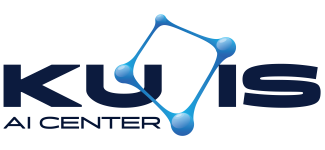
Nazir Nayal, PhD student in Computer Science and Engineering
Can you briefly introduce yourself and share your background in AI research?
Hi, I’m Nazir. I am currently a fellow at the Koç University & İş Bankası AI (KUIS AI) Center and a PhD Student at Koç University. I am also a member of the Autonomous Vision Group (AVG), working under the supervision of Asst. Prof. Fatma Güney and João F. Henriques from the Visual Geometry Group at Oxford University. I am generally interested in applications of deep learning in computer vision, open-world learning, and uncertainty estimation. My project is about detecting rare events and unknown objects in driving scenarios.
What initially sparked your interest in the field of AI? Was there a particular moment or experience that inspired you to pursue this area of study?
In my undergrad, I was very interested in using algorithms and data structures for solving computational problems with optimized solutions. After taking the introductory course in machine learning, it was like a new world of tools was open for solving more complicated and interesting computational problems that account for the stochasticity of our world. I knew then that I wanted to learn more about machine learning and artificial intelligence to solve problems
that are more applicable to real life.
Could you tell us about your current research or thesis topic in AI? What motivated you to choose this specific area?
In order to develop a vehicle capable of driving fully autonomously without human interference, the first requirement for the vehicle is to semantically and geometrically perceive its environment, so that it plans its movements safely and efficiently. However, AI models need a lot of data and many examples to be able to learn a certain task. The more examples are available the better the model learns. My research topic is about perceiving the cases where a vehicle
encounters previously unseen objects or rarely encountered cases during training. Being able to identify such samples is crucial for the safety of the vehicle. This problem is interesting because it is the main obstacle against deploying autonomous vehicles safely.
What are some of the key challenges you’ve encountered during your research? How have you been able to overcome them?
The most interesting challenge that I encounter is explainability. We conduct a lot of experiments that involve training different models under different conditions. Sometimes, we encounter some unexpected patterns. For example, we find that a model performs best under certain conditions. Explaining why these conditions cause better performance is difficult sometimes, whether we approach it mathematically or experimentally. We need to brainstorm and develop experiments to help us reliably verify these patterns. This is important when releasing our results in order to have stronger claims and more sound scientific conclusions. The amount of parameters and patterns that need to be explained and validated is surprisingly large and it requires a lot of patience and brainstorming to explain those.
Can you share a memorable experience or achievement from your AI research journey so far? What did you learn from that experience?
Last year I submitted my first-ever first-author paper to CVPR 2023, one of the most prestigious conferences in computer vision AI research. However, the paper was rejected, even though it had state-of-the-art results in unknown object segmentation. After that, based on the reviewers’ feedback, we improved the method, as well as the way we presented the method in the paper along with the ablation experiments, and submitted it again to ICCV 2023, another prestigious computer vision conference. In the initial reviews, we got 2 borderlines and 1 week reject, and we had one week only to run more experiments and write a rebuttal to change the minds of the reviewers. Thanks to the help from my advisor and project partner Mısra, we were able to
extend our method to another task, and improve our initial results, only in one week. As a result, we managed to make all the reviewers change the scores to accept. I learned that getting rejections is okay, but not trying your best to change the situation is not okay. Also, obtaining the best results is not enough, good and convincing science is that which is presented clearly and
thoroughly validated.
What advice would you give to aspiring students who are interested in pursuing a career in AI and considering graduate studies?
First, find a problem that you are genuinely interested in. This is quite important to maintain a steady motivation to encounter possible challenges and difficulties. The interest might lie in the impact of the problem, or you might simply enjoy playing around with the tools that can be used to solve the problem, such as certain programming frameworks, mathematics, or some type of hardware. Also, ask a lot of questions and be critical of everything. When encountering a new problem, list all sorts of questions that you can think of regarding the problem and try to answer them. The most interesting questions are those that try to uncover the weaknesses of existing methods that attempt the problem; this will be useful for finding new ideas. Questions
accompanied with critical thinking also help avoid false conclusions and over-optimistic results; be your worst critic.
A book and movie that you recommend (they don’t have to be related to ai)
I recommend reading “The Pleasure of Finding Things Out” by Richard P. Feynman, it shows quite an interesting perspective on being a scientist. As for a movie, I do not watch a lot of movies, so nothing interesting comes to mind. However, I recommend watching an anime called “Attack on Titan”. It touches on topics such as human nature, civilization, and the meaning of freedom in a quite unusual way and thought-provoking way.
